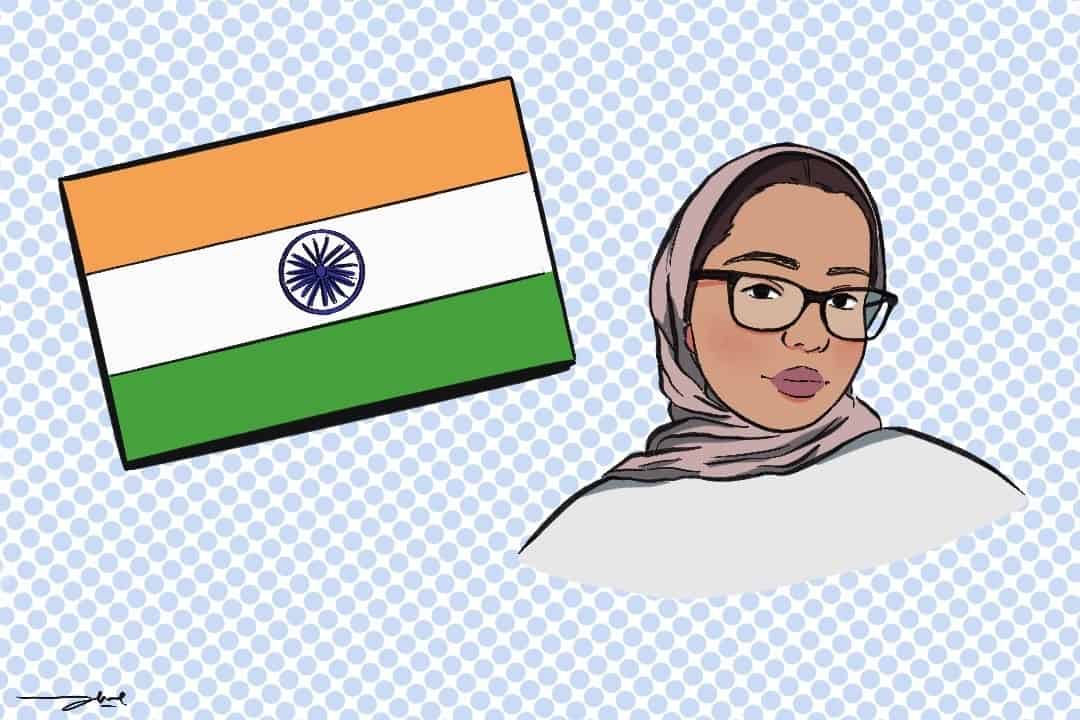My first words were from my mother tongue, Gujarati. My language is what ties me back to the little village of Panoli, where fields of wheat and barley grow and the sunrise is covered in morning fog; where the chai is stronger, the food is fresher, and the water is purer. My ancestors have called Panoli home for centuries, and despite only being able to go back sparingly, this family history maintains my feeling of deep-rooted connection to the land. Gujarati in particular — a language from one of India’s western provinces — as well as our strong faith in Islam ties my family together. We speak a Gujarati dialect that is unique to our village, and it carries the unique history of my ancestors and relatives.
Even while far from Panoli, my early life was immersed in the Gujarati language. As a second-generation Canadian, my parents, grandparents, three aunts, one uncle, and I lived together in my childhood home, a lively house filled with laughter, joy, and warmth. My family only spoke Gujarati, so that is what I used to connect to the world around me. “Chalo chalo!” — “Let’s go, let’s go!” — my dad would say to all of us as we gathered into our old van for another trip to Niagara Falls.
I would spend the most time with my aunts, clinging to their hands everywhere we went and fighting with the youngest aunt because of our close age — we were almost like sisters. They always address me as “Lali,” a term of endearment that one uses for their niece. Although many girl cousins have come after me, they always reserved the name for me.
The memory that clings to me the most is how I spent most of my days with my grandparents while everyone else was at school, work, or both. “Avid na” — “like this” — my grandfather would say patiently to me as he showed me how to spin coins on the floor for the 10th time, and my tiny hands reached under the couch to find a dime or a nickel to try again.
I grew up only knowing Gujarati until I started school at the age of four. Without being able to communicate with my peers, I was isolated. Seeking acceptance, I shunned my own language to fit the mould of what is considered “educated” in Canada, and over time, I began to forget. I could not remember the words that my mother used to comfort me, the words that my grandmother spoke to me softly when braiding my hair, or even the jokes passed around during family parties.
Slowly, I lost my one connection to my homeland. It took me until the COVID-19 pandemic, when speaking to my family became my largest source of in-person social connection, to realize what I had lost.
It struck me when we had all gathered in person after months apart for Eid, a festive celebration that Muslims celebrate after a month of fasting during Ramadan. After our feast, we gathered in the living room, and the stories and jokes began to spark. Someone had made a joke, and everyone erupted in laughter. I turned to my aunt to ask, “What did she say?” This was the first moment I really felt like an outsider.
One would think that re-learning a language is easier than learning it the first time, but Gujarati is not a simple language to pick up. Gujarati-produced media seldom has English translations, and even in translation, meanings fall through the cracks: sometimes, a phrase can only be truly understood when you’ve spent a lifetime speaking it. By losing my Gujarati, I lost the cultural references and community that come with it.
If I had been born a generation before and still lived in Gujarat, I would not have felt so disconnected from my family, my motherland, and my culture. The sad truth is that I also would probably not be sitting here today, gaining a proper education and working, learning, and being my own person. India is a beautiful country, with incredible cultural and linguistic diversity. Unfortunately, 200 years of British colonialism resulted in the deterioration of its land and resources and a divide-and-conquer strategy between the Hindus and Muslims, which ended in shambles during the 1947 partition.
This religious tension only spread and festered afterward, leaving Muslims unable to get stable jobs. This forced my parents to leave India to help their families reach safety and stability and make sure that their children had a fighting chance in the world to do more with their lives than just struggle. Often, I think about what India could have looked like before colonization, and I can’t help but wonder how differently my life would have turned out if I had grown up in my homeland, with Gujarati as the language I think, dream, and speak in every day. To me, it’s not just a language. It’s the face of every ancestor that came before me, that created the face I bear today.
I can’t rewind the past and stop my language from leaving me. I simply have to accept that I have to re-learn it, something that often hurts my ego.
I’ll admit, my Gujarati is still not very good, but my broken words have now started to form sentences and full conversations. I only felt comfortable conversing with my grandparents in Gujarati for a long time because they are the only ones who don’t laugh at me.
Over time, though, I let go of my fear of embarrassment and pushed myself. I don’t want my language to be forgotten in future generations. My family didn’t come here to erase our past — we came here to build a better life. I don’t want to forget my culture to be Canadian, but rather, make a new identity that ties my heritage to the place I now call my home.


